Disciple: The Farm and Faith Partnerships Project
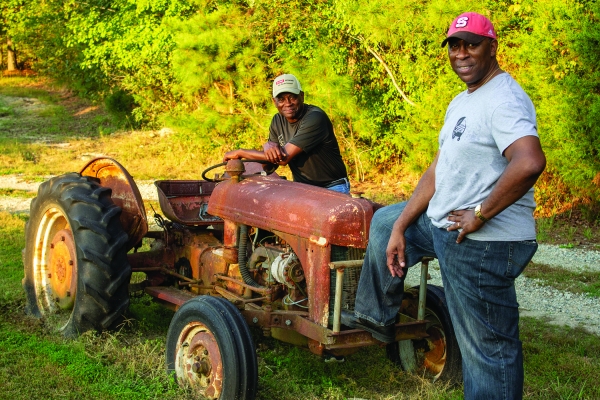
True partnership is a thing of wonder. When done well, partnership provides benefits to all parties and creates an environment of mutual support and understanding. When done really well, it reveals unexpected gifts and paths.
Such is the story of the Farm and Faith Partnerships Project. A program of the Rural Advancement Foundation International (RAFI-USA)’s Come to the Table program, the Farm and Faith Partnerships Project has brought together 15 farmers and 20 churches in an arrangement of mutual support that has not only accomplished every goal set for the program, it has exceeded even the most optimistic hopes of those who first had the idea.
[Image: Brothers Ken and Dennis Daniel of Singing Stream Farm in Granville County grow and sell produce through the Farm and Faith Partnerships Project Wake County CSA. Photo courtesy of Singing Stream Farm]
FATEFUL CONNECTION
The Farm and Faith Partnerships Project came about because of a chance meeting at a conference in February 2020. Jarred White, the Farm and Faith Partnerships Project Manager, was attending the United Church of Christ (UCC) Southern Conference, where he met Gary Smith, a member of Raleigh’s Community UCC.
RAFI-USA is a farm advocacy organization based in Pittsboro. Its work focuses on fighting against the root causes of unjust food systems, its efforts ranging from on-the-ground work with farmers to technical assistance to policy advocacy at the federal level. It works alongside farmers to challenge consolidated corporate power and to increase market access.
A cornerstone of its work is with its Farmers Of Color Network, which extends throughout the Southeast and several U.S. territories. Though farming is not an easy life for anyone, farmers of color in particular have faced more challenges than their white counterparts. They have faced, and continue to face, institutional discrimination and restricted access to markets. RAFI-USA works to make sure that farmers of color have equitable access to financing, technical resources and market opportunities.
Community United Church of Christ is a church in Raleigh that for many years has had a focus on justice issues, including climate change and social justice. When Smith and White started talking, White shared an idea of starting a community supported agriculture (CSA) program in Wake County, pairing churches and local farmers of color.
“Jarred explained to me that farmers of color still endure systemic racism within the food system,” remembered Smith. “Historically, Black farmers have lost farmland through shady deals, had trouble accessing markets, stores and loan programs that allow them to adapt to climate change and farm sustainably. It just seemed so unjust to us.”
Smith immediately saw value im working with RAFI-USA and local churches to start a CSA in partnership with Black farmers. The two men agreed to continue the conversation after the conference, unaware a pandemic was about to bring everything to a halt.
Almost everything. “A lot of things got put on the back burner,” said White. “But Gary was persistent. I’m incredibly grateful to Gary and his persistence.”
They stayed in touch, and by August, White had the Farm and Faith Partnerships Project mapped out. He proposed gathering about 10 churches to participate in a CSA, and Smith agreed to contact churches around Wake County. One of them was Nativity, Raleigh.
ROOTS IN SACRED GROUND
“For us, this all really started with the Sacred Ground program of The Episcopal Church,” said Carl Sigel, Nativity member. “We went through the program in 2019, and when we finished, we continued with a discussion group that we called Sacred Conversations. We did that for a period of time with an emphasis on asking, ‘We’ve identified the problem of racism. So what are we going to do about it?’”
About that same time, conversations were happening elsewhere in North Carolina through NC Interfaith Power & Light, the North Carolina Council of Churches and several other organizations about area food insecurity and the injustice faced by Black farmers throughout the last century. “They were suffering because of it,” said Sigel. “We had to do something about it.”
Enter RAFI-USA and Smith. Smith and Sigel are old friends, and when Smith called Sigel about the proposed CSA, Nativity was one of the first churches to agree to participate.
“Every congregation I contacted immediately saw the possible impact of the program and was excited by it,” said Smith. “Usually something new takes a lot of convincing. It just was not the case this time.”
Meanwhile, White was working with RAFI-USA’s network of farmers to see who might be interested. When the CSA launched in spring 2021, seven congregations were on board alongside four farmers. In less than two years, that number has doubled, with the Wake County CSA partnering 15-20 churches and 10-15 farmers across nine farms.
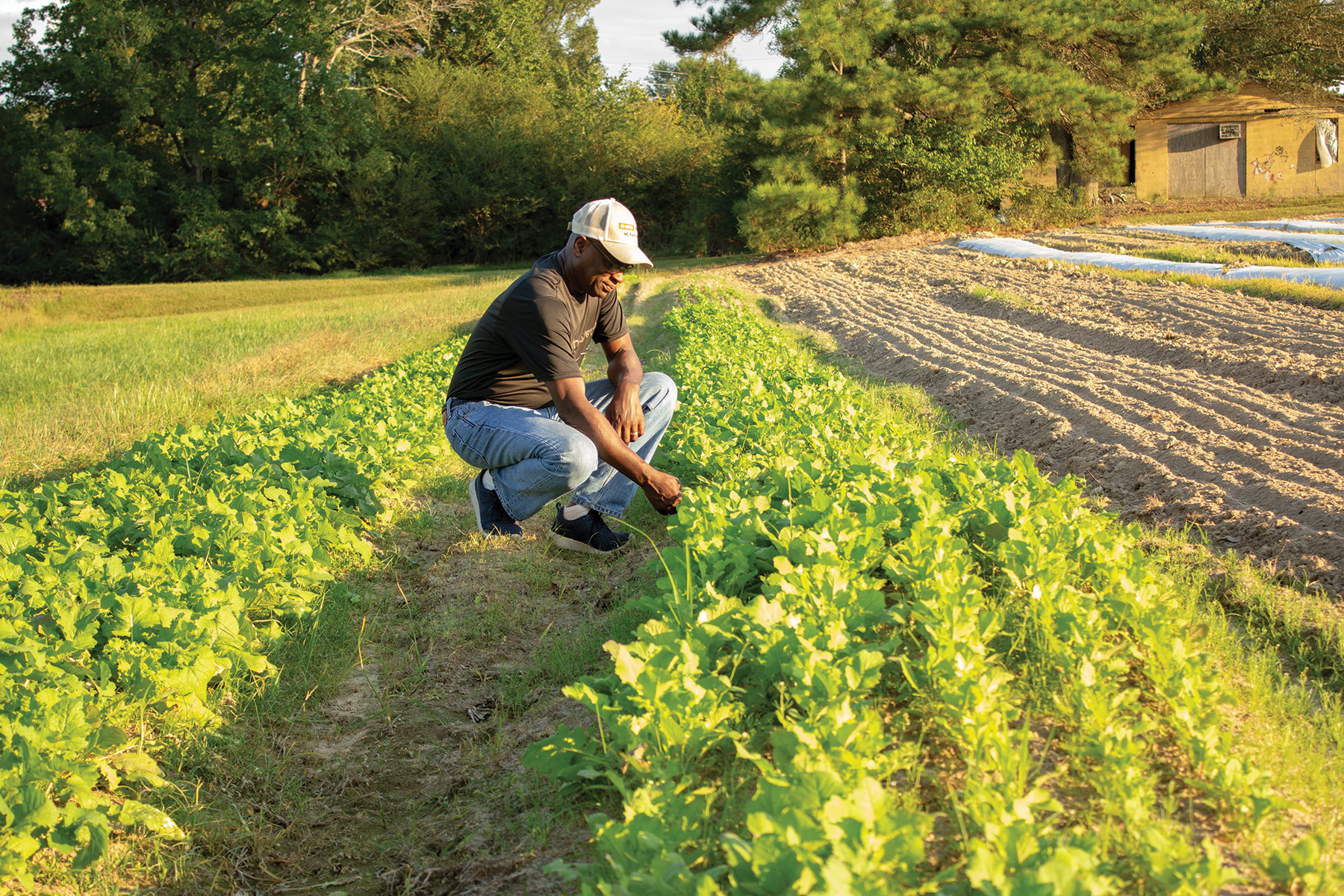
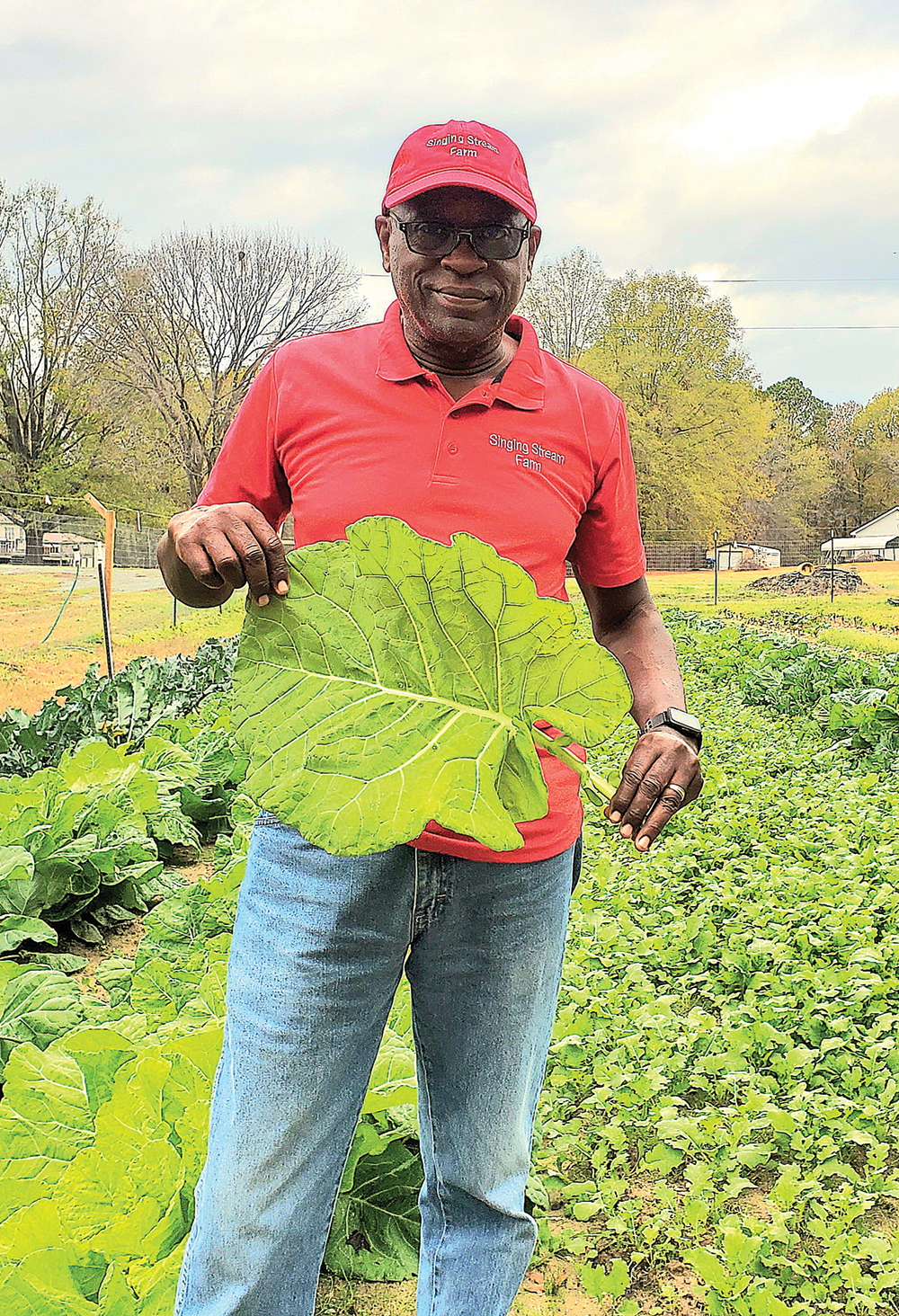
[Images: Brothers Ken and Dennis Daniel of Singing Stream Farm in Granville County grow and sell produce through the Farm and Faith Partnerships Project Wake County CSA. Photos courtesy of Singing Stream Farm]
A SINGING STREAM
One of those farms is Singing Stream Farm, owned and operated by Ken and Dennis Daniel. Located in southern Granville County, the Daniel brothers are the third generation to farm the land. They were raised there, helping throughout their childhoods before departing for corporate careers.
When they retired and decided to return and revive the farm five years ago, the soil had lain dormant after decades of growing tobacco.
“My brother and I decided that we were going to try and get the farm back in production,” said Ken Daniel. “We looked at trying to grow vegetables and things that would be a benefit to the community and surrounding area. We wanted to make sure that we did the right thing with the land that our grandparents worked hard to get. I think my grandparents would be very proud to know that we’re actually using that same land to grow and produce food and to do it in a way that is beneficial to the people we serve.”
The brothers knew how to grow things, but to ensure they felt secure in their knowledge of the business side, they enrolled in and graduated from the North Carolina State Farm School in 2018. After graduation, they were leaning toward a CSA business model when Ken Daniel received a fateful phone call.
“I have a cousin that works for the county extension agent, and he was telling me about this farmer in Franklin County who was using geothermal technology to cool and heat his greenhouse,” remembered Daniel. “He knew I was interested in innovating things, and my cousin invited me to meet the farmer. We met and had a very good conversation, and I found out after the fact that he was involved with RAFI-USA and that RAFI-USA was trying to put this faith-based CSA together. He said he thought it was going to get bigger than his farm could handle and invited me to one of their meetings. I went and was very interested in what I was hearing, and it’s kind of been history from there. It’s like fate brought us together.”
ABOUT CSAS
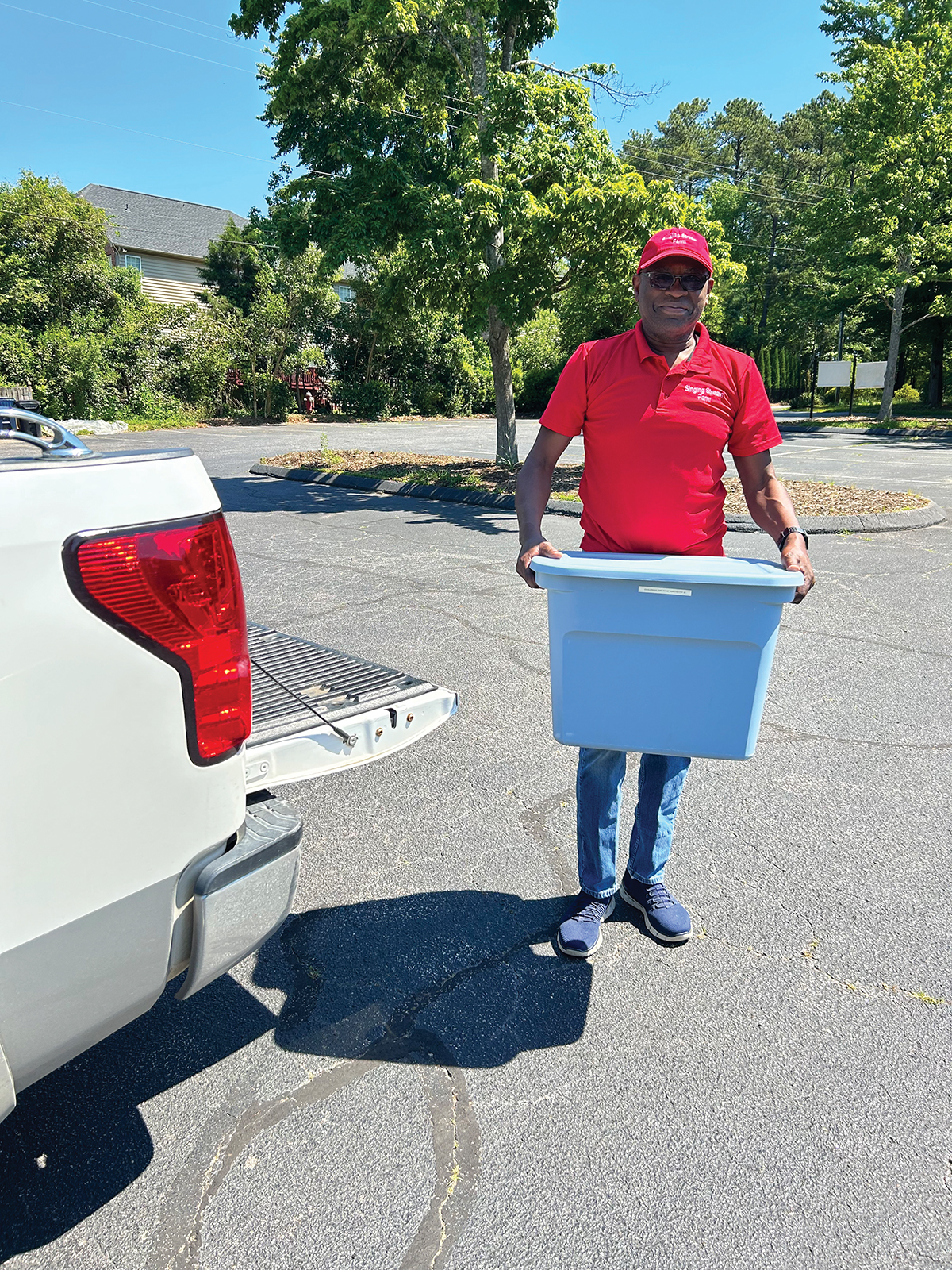 CSAs have their roots in a very similar model developed in the 1940s and 1950s. Called clientele membership clubs, that model brought together farmers of color and customers in their communities when Jim Crow laws restricted the access of both farmers and customers to markets and grocery stores. Over the years, that model has grown and developed into today’s CSA.
CSAs have their roots in a very similar model developed in the 1940s and 1950s. Called clientele membership clubs, that model brought together farmers of color and customers in their communities when Jim Crow laws restricted the access of both farmers and customers to markets and grocery stores. Over the years, that model has grown and developed into today’s CSA.
At the heart of the CSA model is security for the farmer. With a CSA, instead of a farmer growing crops first and finding a buyer for those crops later, people in the community purchase shares of those crops before the season starts, and the farmer is paid up front. CSAs provide farmers financial security and the ability to spend their time farming, rather than advertising or doing outreach in an effort to find potential customers. The CSA format provides working capital to the farmer to use throughout the growing season, allowing them greater latitude for planning and making improvements.
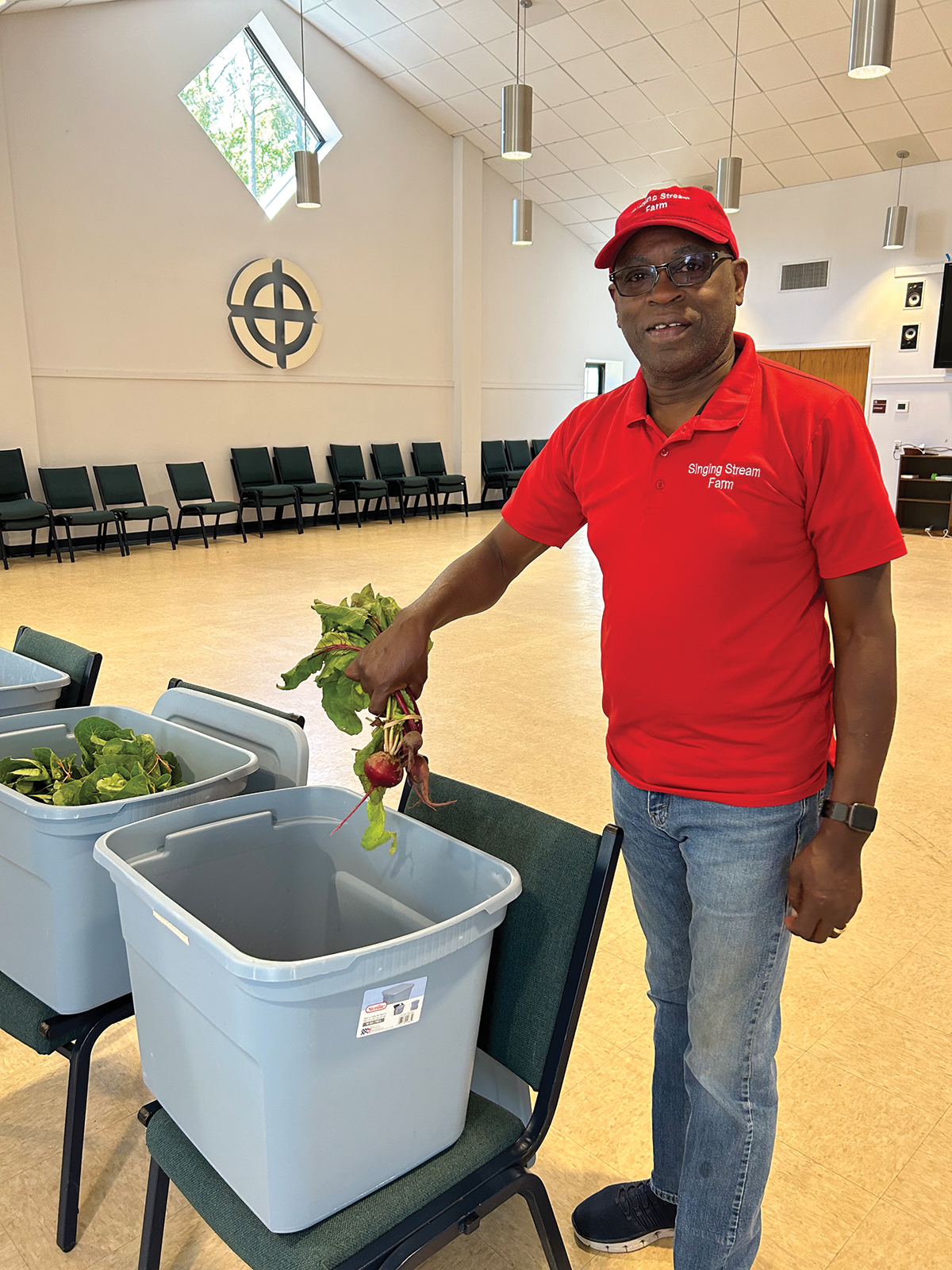
For the shareholders, they have a much more intimate connection to the food they’re eating. They also find that while paying up front can take some adjustment, over the course of the season CSAs prove to be much more cost-effective than trips to the grocery store. The Wake County CSA is comprised of three seasons: spring, summer and fall/winter, each lasting between six and 12 weeks. A single CSA share costs $20-40 per week and is designed to provide a family of four roughly five servings per person per week.
“I’m part of a CSA as well,” said White. “In my experience, if I’m comparing the cost to what I pay at a grocery store, the CSA has been 10-20% less expensive. It’s freshly grown food, and it’s great knowing I have an immediate connection to the person growing that food. It’s really a pretty good deal.”
[Images: Meeting the farmers who produce our food is one of the benefits of membership in the Farm and Faith Partnerships Project Wake County CSA, which delivers weekly to faith communities like Nativity, Raleigh. Photos by Carl and Emilie Sigel]
Both the farmers and RAFI-USA recognize that the upfront payment model can be a burden for those struggling financially or on a limited income. RAFI-USA is working with farmers to be able to accept Snap and EBT payments to make sure the fresh food is accessible to those who may need that access the most.
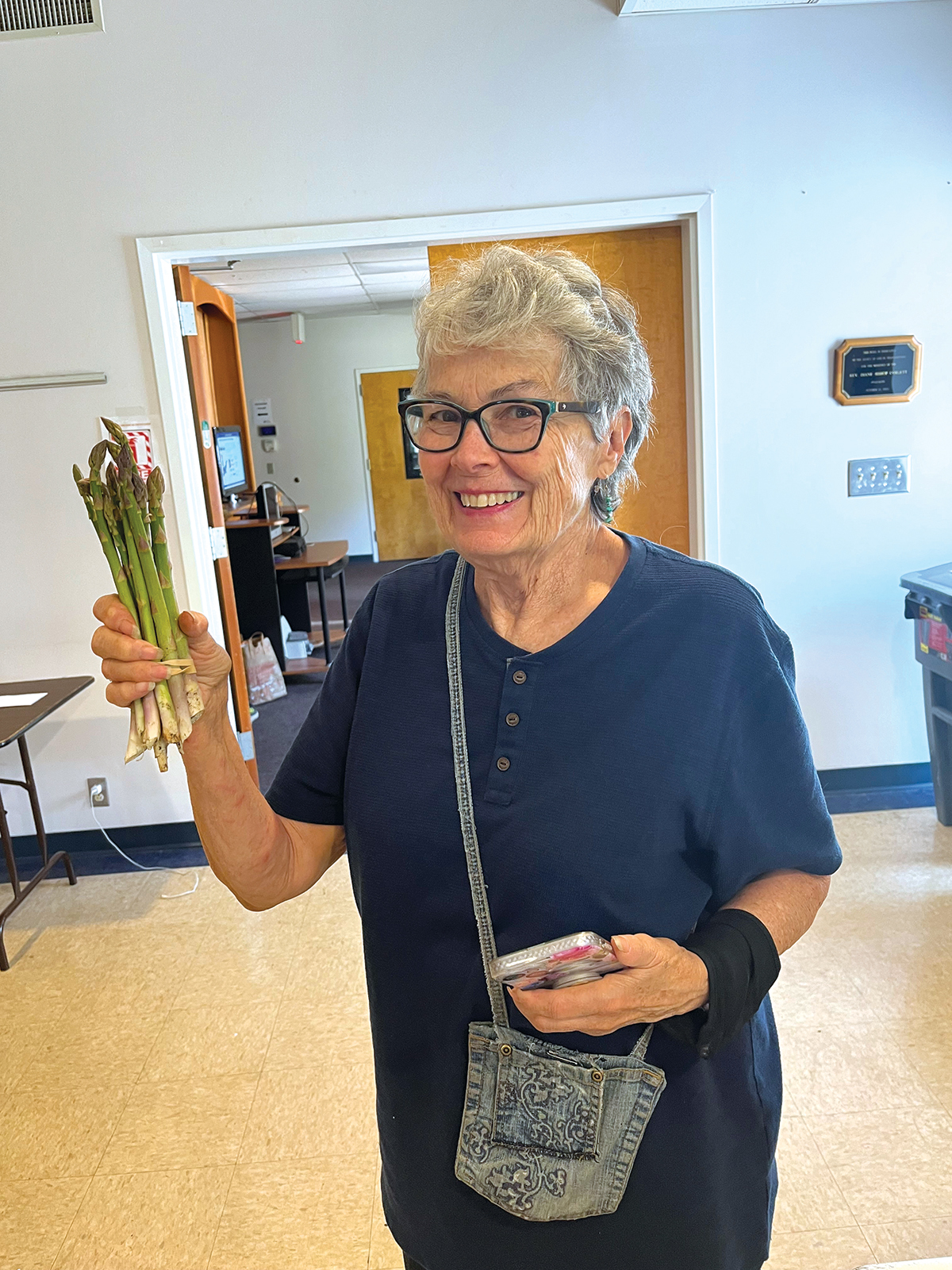
The other adjustment for some is the weekly pickup of the produce. But it’s a habit most come to look forward to, as it has become a time of fellowship and connection. “We look forward to the weekly deliveries,” said Daniel. “We’ve established good relationships with the churches and the points of contact and the volunteers that come to the churches to actually distribute the produce. I think it’s been a great benefit.”
MORE THAN MONEY
For those participating in the Farm and Faith Partnerships Project Wake County CSA, the real benefits go far beyond the financial. Genuine relationships have developed over the last two years, both among the farmers themselves and with the customers for whom they provide.
All the farmers and the church points of contact meet weekly via Zoom. They check in with each other, discuss challenges, share plans and coordinate efforts. They also delight in each other’s company, most notably the child who was born to one of the farming couples at the start of the partnership.
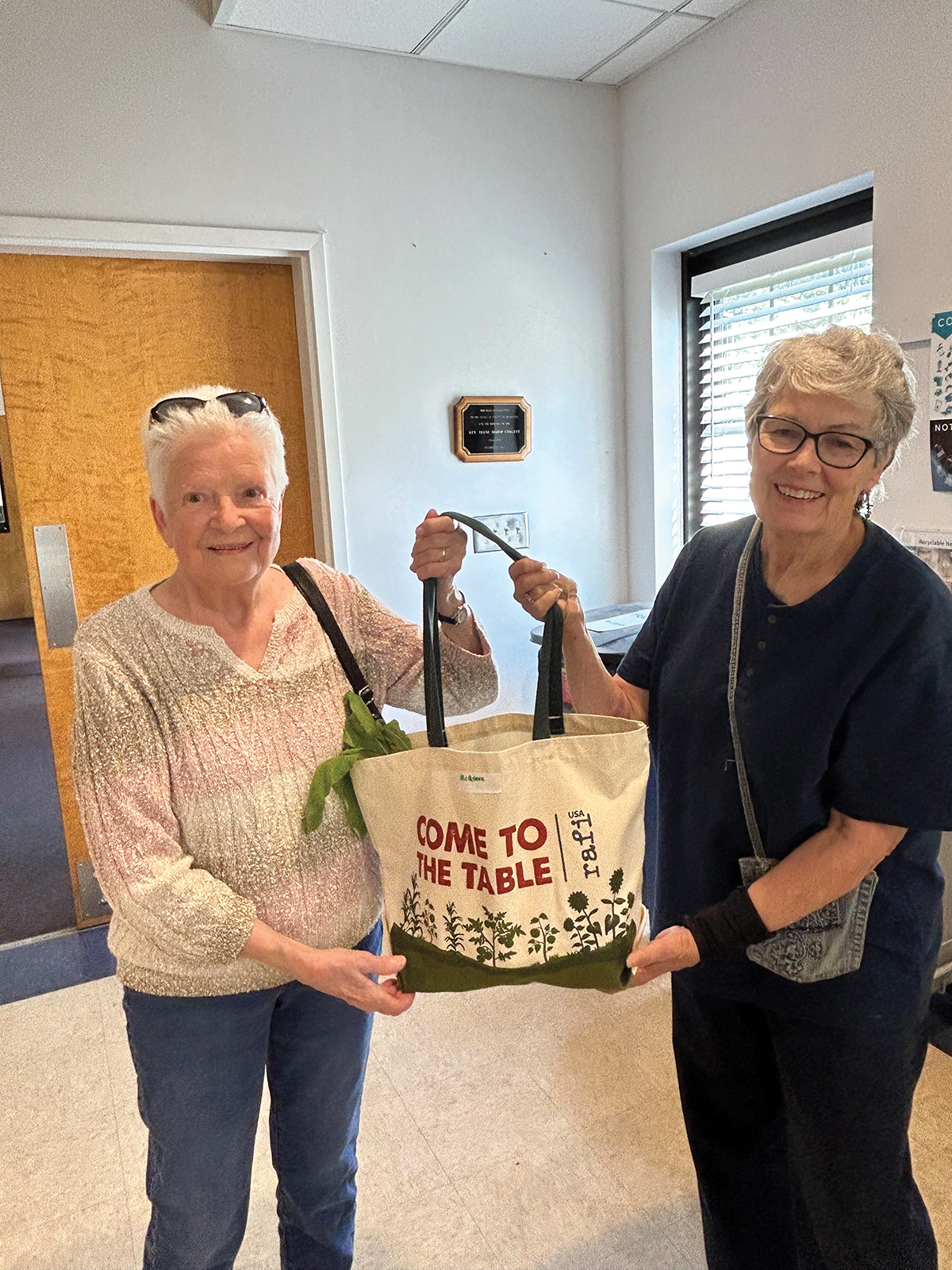 “She came to her first Zoom meeting the day she was born!” said Smith. “We’ve watched her grow over these two years. She’s so smart and just a beautiful kid.”
“She came to her first Zoom meeting the day she was born!” said Smith. “We’ve watched her grow over these two years. She’s so smart and just a beautiful kid.”
The farmers help each other, coordinating crops and sharing resources to ensure all are able to meet their CSA commitments. Their customers are no strangers to the farms, often spending days lending a hand during planting season. It is this time spent together that deepens understanding and a new perspective, knowing how crops are affected by drought or too much rain.
The relationship between farmer and customer has led to the exploration of new crops. Daniel had a customer once request Swiss chard. “I had never grown Swiss chard before,” he said. “But I said I’ll give it a try. And now we grow Swiss chard every year because it’s a very popular thing. If it grows well in this region, we’ll give it a shot.”
[Images: Members of Nativity, Raleigh, come to the church once per week to pick up their shares of the Farm and Faith Partnerships Project Wake County CSA. Photos by Carl and Emilie Sigel]
Sometimes it’s the farmers introducing new food to customers. “We grew—call it greens,” said Daniel. “As I started introducing it into the CSA, people said, okay, how do you cook this? So we started sharing recipes. The relationship goes both ways.”
The relationship between all to the land that produces the food is celebrated every year with a Blessing of the Land. Each spring, one farm hosts the event, but all the farmers bring soil from their own farms, and the participating churches are invited.
Education is offered. Daniel is one of a few of the farmers who offers seminars and workshops at participating churches, sharing insights into farming and answering questions from those who want to know more about where their food comes from and what goes into producing it.
“It’s really about building community,” said Sigel.
THE NEXT SEASON
The model piloted in Wake County continues to grow and is now being replicated in other counties, including Durham County.
“We definitely want each CSA to be beneficial for each party,” said White. “We want them to be profitable and practical for the farmers, and we want them to be practical and helpful for the congregations.
“We also want these relationships to grow into something that transcends our nonprofit. These are genuine, authentic relationships that are being built in communities throughout the state, relationships that are helping to increase the resilience and flexibility of our food system.”
“We are looking forward to expanding it,” said Daniel. “Expanding gives other small farmers the ability to be able to have customers and market to those customers.”
While much goes into the success of the Farm and Faith Partnerships Project, why it has really taken root so quickly is perhaps not so hard to understand.
“It just goes back to the faith aspect,” said Sigel. “We have to care for one another. We have a moral imperative. Food and agriculture, climate and biodiversity loss. Loving our neighbor. All of these things are connected. This is one of the best ways we can do it.”
JOIN THE PARTNERSHIP
Would you like to be part of the Farm and Faith Partnerships Project?
If you are a church that would like to take part as a congregation, contact Jarred White.
If you are an individual living in proximity to Raleigh whose church is not yet a partner, Nativity invites you to participate with them. Contact Carl Sigel.
Christine McTaggart is the communications director for the Diocese of North Carolina.
Tags: North Carolina Disciple
